The new year started with contemplation and hope.
I was in Slovenia preparing for the trip to Philadelhpia. My past year’s travels started in Southeast Asia and ended in India. The majority of my travels were recorded on the African continent. I made a video. Take a look on my YouTube channel.
Cartagena diary Colombia
I am just returning after spending the last week of January 2025 in Cartagena, Colombia. It was a wonderful convening at the Hay Festival. It was also my first trip to South America. I had four panels, and all of them were satisfying. The Spanish-speaking people out there were curious about the work on caste. They had heard about the topic in their curriculum but were not aware of the caste systems existing in their societies.
The attention to the global similarities of caste was buttressed by the screening of Origin to a packed theater, and the presence of Ava DuVernay. This star event made the dialogue and conversation on caste presentable to the audience.
The former education minister of Colombia and currently a Du Bois Fellow who is convening the Global Anti-Blackness project has launched the Malunga Network to focus on the Black communities of the Caribbean and South America.
This was my maiden trip to South America, and I was very excited to finally visit the continent and make a check mark of crossing over 50 countries. I was particularly interested in the Afro-Colombian people. My host, Aurora Vergara Figueroa and her comrades Yoseth Ariza-Araújo were kind enough to take me around the settlements of Afro descendants just a stone’s throw away from the colonial walled city of Cartagena where we were put up.
They are a traditional community of fisherfolks who live on the beach front property. Now, that is under threat due to the interests of big and small hotel chains and businesses who want to buy that property. But the community law doesn’t allow members to sell except after getting permission from the community. However, that has been eroding since individual families are giving up.
As happens with any marginalized community, wherever they live is marked as an inhabitable and criminalized zone. The community people here are trying to ward off that stereotype by drawing the younger folks towards music, in particular, various kinds of drums.
They also have a school that teaches drumming, including the craft of making it, how to source the hide, and how to prepare the instrument. The school principal was giving an overview of the procedures. It reminded me of the leather work and art, especially dappu, dhol, parai used by the Dalit communities of India. There could be a terrific collaboration here between the Dalits of India and the Africans of Colombia.
Mangosteen is one of my favorite fruits. It has the taste of freshness, a tangy flavour without an overdose of sweetness. I carried it with me back to America.
Publications
You can read the article “Caste, Colonialism And The Idea Of Africa” here. I write,
The African continent was locally ruled by chieftainships, and tribal lords were brought into a modern constitutional republic that further endangered the vulnerability of the farmers, pastoralists, peasants, artisans and small merchants. The old boundary was surpassed to create a new nation.
I was invited to write on Love and Lonilness. Two things that go in similar directions but can also have a separate life of its own. Loneliness with ideal practice of austerity and practice of morality (sheela) can lead to liberation. I took a stab at it in this article. “Crying in Love is to Grow in Love”. I write,
Crying is an emotion that makes one stronger. The king cries, the plebeian cries—they cry for the same reason—the loss and pain endured in the valley of mind.
For the longest time monks, philosophers, prophets, and gurus have advocated for a position of departing from the axiom of love. Love has been a fluid metaphor as well as a dutiful programme that has a moral anchorage. To be in love is to check one’s mortality and start with the quiver of optimism.
You have already read about Shahu Patole’s book Dalit Kitchens of Marathwada, through my column at the ArtReview. I had promised then that I would be writing a lengthier review. You can access the review published in the Hindustan Times here. The book is so arresting that another extended review of it examined through a different angle—that of region, politics and caste will be published in the near future.
Mahabodhi Vihara
where the ascetic Siddhartha became Buddha is misused by the Hindu Brahmans
credit: Wikimedia commons
There is another issue that I want to bring to your attention. The site of Buddha’s attainment of Nibbana, now known as Bodh Gaya in Bihar, has been a site of contestation for over four centuries. Buddhism received civilizational attacks from the Brahminical and Islamic invasions. Due to their pacifist nature, they have been unable to mount a response to preserve their heritage and culture. This was one of the critiques of Dr Ambedkar.
Ever since the seventeenth century, this site has seen Brahminical establishment. The Burmese King had promised to reinstate the site in the nineteenth century, but the war during that time thwarted the efforts. There were British attempts to hand over the sites to Buddhists, spilling it into the twentieth century. The government of India formally passed the Bodh Gaya Temple Act of 1949 with an intervention by the then President of India, a Kayastha Bihari, Rajendra Prasad.
This Act was not taken well by the Buddhists as it gave a place to non-Buddhists in the management of its affairs. This has ensured that Hindu Brahman members have had a role to play in bringing the damaging incursion into the holy site.
I visited the site with a local Member of the Legislative Assembly, who was deputed by his Party to receive me during my visit to Bodha Gaya in December of 2022. I was shocked to see how a smaller temple right outside the door of the Mahabodhi Temple was used by Brahmans. They defaced the Buddha’s statues and made it appear to be some Hindu god.
The MLA and I confronted the priest there, who visibly was plotted there. He was defenseless and seemed that someone had asked him to be there.
The same thing was noticed in Lumbini, where Hindu Brahmans had started their side business on the premises of the birth of the Buddha. One of the saffron-clad priests took a leak not far from the site. I was enraged to see this and took him to task. He apologized for the matter of incursion that remained.
Araya Surei Sassai (credit:fb)
The history of that struggle has an important episode of Araya Surei Sasai, a Japanese-born Indian monk who took on the struggle of liberating the Mahabodhi Vihara. He led a march in 1995 and also went ot court. The matter is pending. Now, that historic struggle is gaining momentum again.
Monks under the banner of Mahabodhi Mahavihara Mukti Andolan (Mahabodhi Temple Liberation Movement) are on the fast demanding complete transfer of the temple management to the Buddhists. The monks were forcibly removed from the site. You can read more about the police action here.
Congratulations,
Scott Stroud has been pushing the plug on Ambedkar’s inclusion in the Pragmatic sphere. Despite the levelled pushback and criticisms he has received, Scott has been striving to place Deweyean influences on Ambedkar. He is arguing with both, the pragmatists and Ambedkarites about the philosophical axioms of Dr Ambedkar which make him an important member of the Pragmatic school of thought. You can read another of his articles published in Pragmatism Today here.
Bonnie Zaire, Gaurav Pathania & Muhammedshah Shahjan published an article on caste on American campuses. What it means to foreground privilege among Indian Americans is explored in this article entitled, “Invisibility of caste in everyday campus life: Indian American students and their Understanding of privilege”. You can access the article here.
S Anand’s book on Kabir is out. Evocatively titled, The Notbook of Kabir is about Kabir. I am yet to read the book. But the reviews have been glaring.
At the book launch, he did what any Kabir disciple would do–sing! He sang Dhrupad, Na Om na Greem bas Jai Bhim (Neither Om nor Greem [a Sanskrit seed mantra often linked to Tantric or esoteric practices] only Jai Bhim).”
Read this beautiful coverage of the book launch in Delhi.
Another book on the shelf is by Syracuse sociologist Prema Anne Kurien. Prema reached out to me many years ago to interview me. The dates were difficult to match, but she insisted and talked on the phone. She was keen to learn about Dalit American activism. Hesitantly, I gave my views. Following this, she published an article. Now, this book continues the legacy of her scholarship in the field.
credit: Vikrant Bhise
This article in the Mint Lounge edition has coverage of Dalit artists. It covers the veritable rise of the new generation of Dalit artists is indomitable. The likes of Savi Savarkar, who carried the movement and the community’s history with pride and honour, led the pathway to present-day artists. The article also covers my body of work in articulating the philosophical position of art, mind, and caste. You can read the article here.
On another front in India, a scholar couple, Dr Kshipra Uke and her husband Dr Shivshankar Das, along with their toddler, underwent a hellish experience of caste discrimination at the hands of brahman landlord. Das name did not give away his caste. The landlord assumed him to be a brahman. But upon discovery of his caste, the relationship soured. The landlord did not give them an encouraging response.
One day, his son broke into their rooms and stole their raw data of fieldwork. This led to them running from various quarters to finally knock on the doors of the court, leading to the Supreme Court. They argued that their stolen knowledge compensatory under the Intellectual Property Rights is an atrocity and should be held liable under the Prevention of Atrocities Act. Dr Uk, speaking on the phone to a media member, said:
“It shifted the narrative of atrocity—from rural to urban, from uneducated to highly educated Dalits. It has redefined property under the SC/ST Act. Intellectual property that Dalits possess can no longer be stolen or manipulated”.
You can read more about this amazingly inspiring story of two educated Dalit scholars who did not let the system play them but stuck to their ground for justice. Many folks just shudder at the mere mention of court or police due to the demanding toil it puts on the Dalit and other marginalized groups who are not adequately represented in the system. The justice struggle of Uke and Das will indeed encourage others in similar positions or those seeking justice to own up their talent and prove their mettle. One can only imagine the traumas they must have undergone and the pressure it must have put on their career prospects and relationships while raising an infant. This edition of the newsletter honors the professorial couple and adds a voice of encouragement to their back for the fortitude and courage they have demonstrated. Read about the horror-stricken yet inspiring story here.
A wonderful presentation by Anjali Arondekar on her book, Abundance Sexuality’s History. True to her discipline, Anjali is a first-rate theorist who writes masterfully about her subjects and gifts them with a suave prose that is polished and glossy. I loved the part wherein she brought out her biography, which she told me is an epistemology. This is what we have been arguing for and curating our stories and knowledge forms without remaining arrested to the weirdness of jargon abstractness that offers little in direct but tells stories in longed metaphors.
I am changing that. My mentors have asked me to do the same. It is imperative to communicate knowledge as a discovered synthesis. It certainly needs thoughtful reflection, which can be done without rescuing oneself from the confusing literary tangent.
As Skip Gates once told me, “Young people who do that just embarrass themselves.”
Memoriam
Michael Burroway passed away on Feb 3, 2025. I had recently met him in Trinidad at the Oliver Cox Conference. We chatted, and he was curious to learn about my research. Loved your interventions! I clearly need to read what you've been up to. Enjoy Trinidad.” He then read/listened to the introduction to The Radical In Ambedkar with Anand Teltumbde. He said below:
Dear Suraj, I just listened to your introduction (with Teltumbde) to The Radical in Ambedkar. My jaw dropped as you went from a critical appreciation of Ambedkar to the problematic appropriation of his legacy, from there to Marx, Du Bois and Gramsci! And, of course, much else. Delighted by your critical reflections on the hagiography of Ambedkar to a serious consideration of his political praxis as well as his "blindspots", but you need to do the same with Du Bois and his worship of Gandhi and Nehru (until he realised the latter's more problematic side). Is it not the case that just as Ambedkar misunderstood the US, Du Bois misunderstood India? But the parallels between the two are unmistakable and worthy of further exploration. I only wish I had known of your book when I wrote about "Du Bois' Indian Romance." Better late than never. Best, Michael.
I sent him my piece, which he promptly read and offered his comments. He was surprised that I found the US Caste School relatable. This prompted him to re-look at their work.
“Interesting that you should defend US caste studies of Myrdal, Warner, Davis and Gardners. I'll have to look at them again. I look forward to reading more…”
This submission on Burroway in 2001 on the American Sociological Association's website still appears contemporary.
Read here.
January
01 Jan – Bhima Koregaon Victory Day
03 Jan — Savitribai Phule Birth Anniversary
08 Jan — World Buddhist Flag Day
26 Jan — Republic Day of India
31 Jan — First edition of “Mooknayak” (Hero of the Silenced) published by Dr Ambedkar in 1920.
February
05 Feb — Dr Ambedkar presented the Hindu Code Bill to give rights of property, inheritance, and freedom to chose for women in 1951.
07 Feb — Birth anniversary of Ramabai Ambedkar, considered the mother of Dalits.
23 Feb — Birth anniversary of Gadge, a revolutionary saint and reformer of the washerman caste.
27 Feb — Birth anniversary of Ravidas, the Guru to Gurus.
Until we meet soon.
Happy 2025. From where I am currently, it seems anxious.
#JaiBhim #DalitLove
suraj






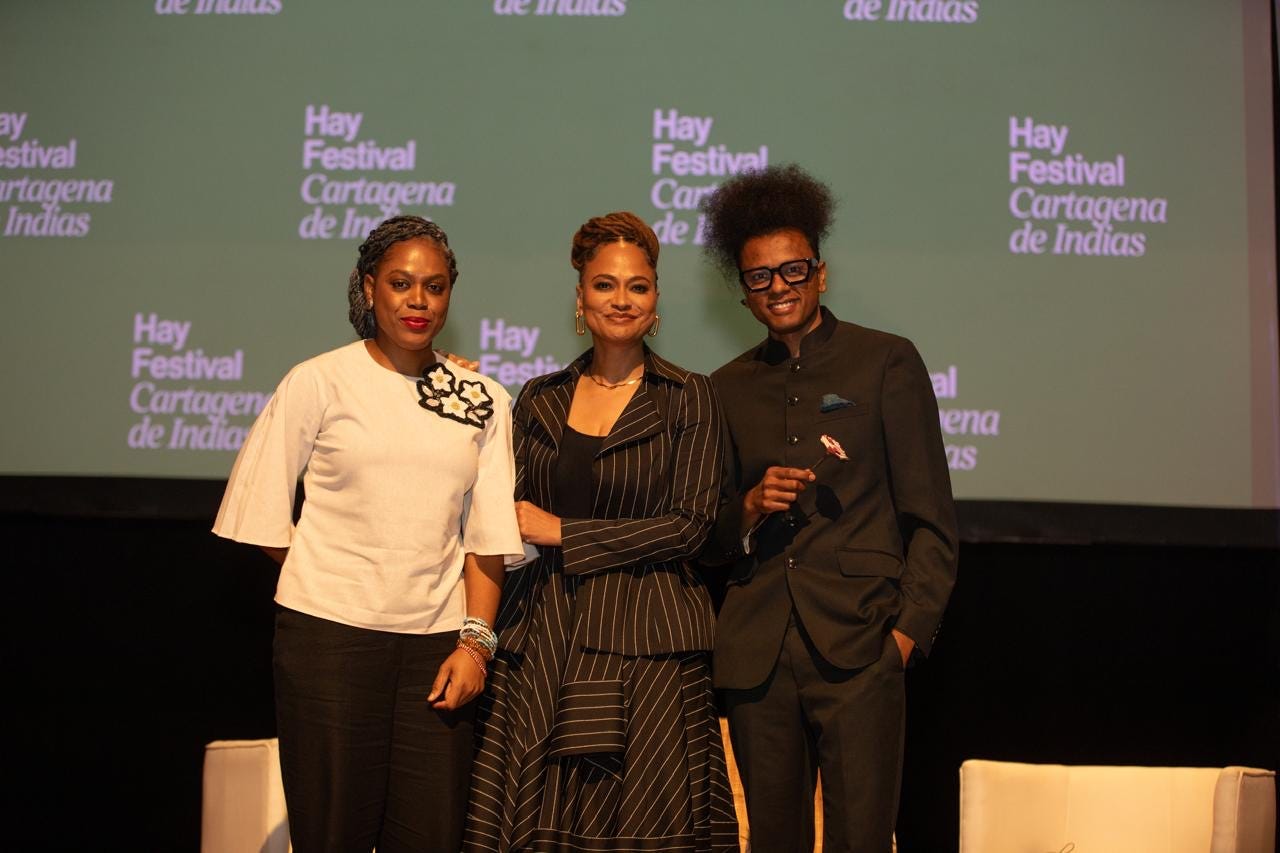


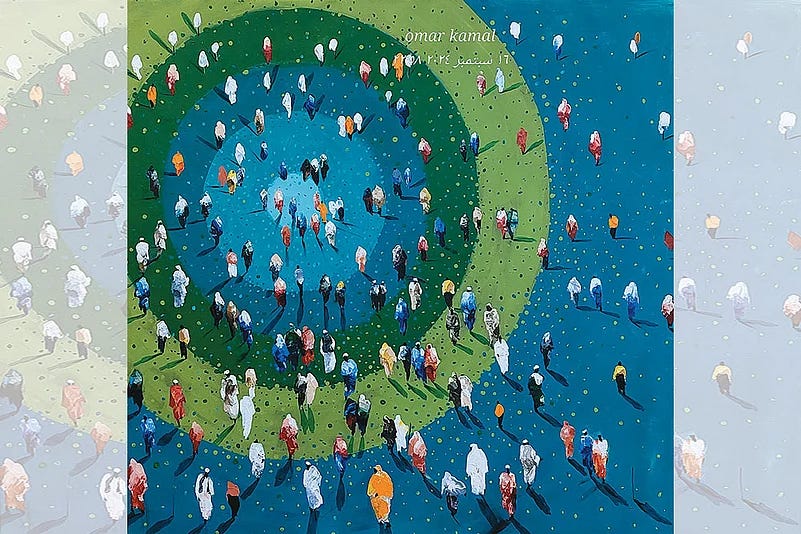
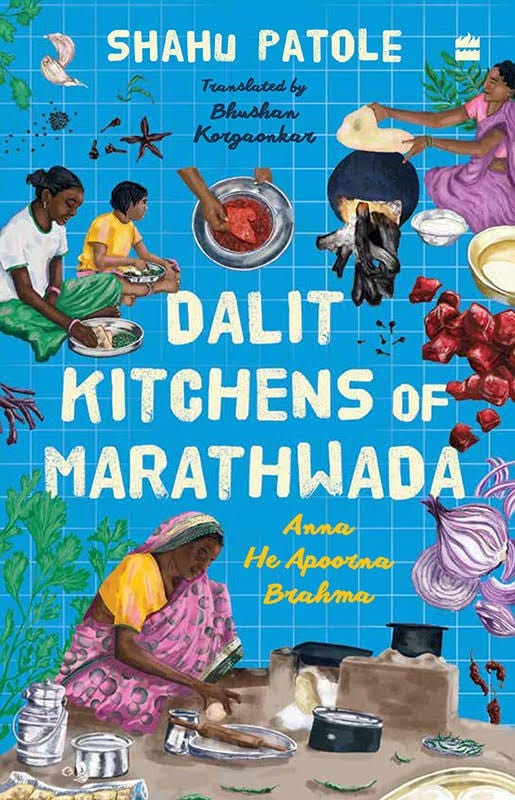
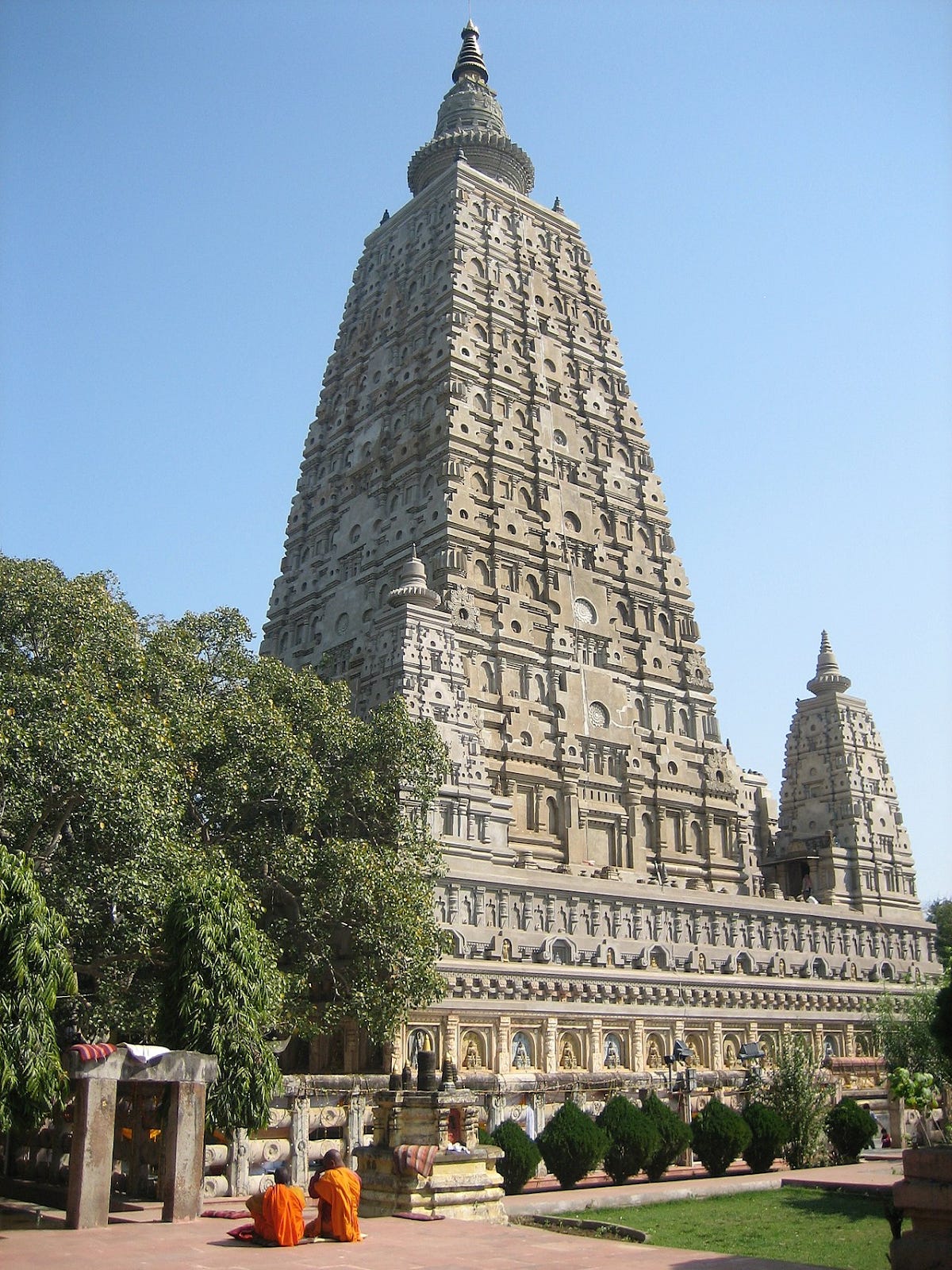
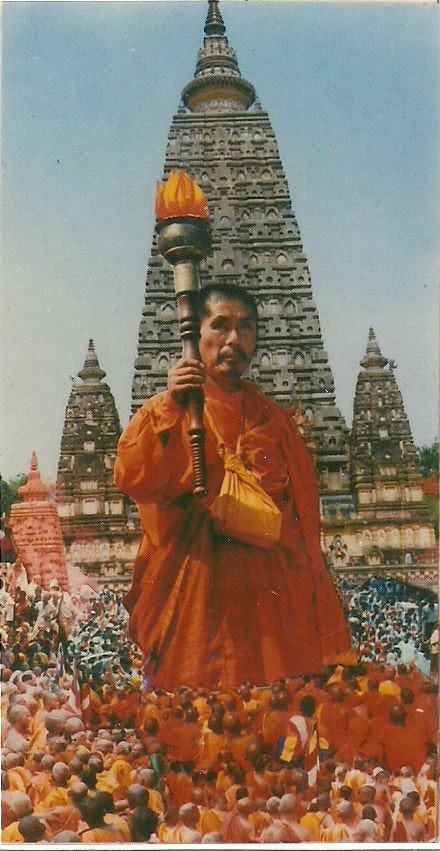



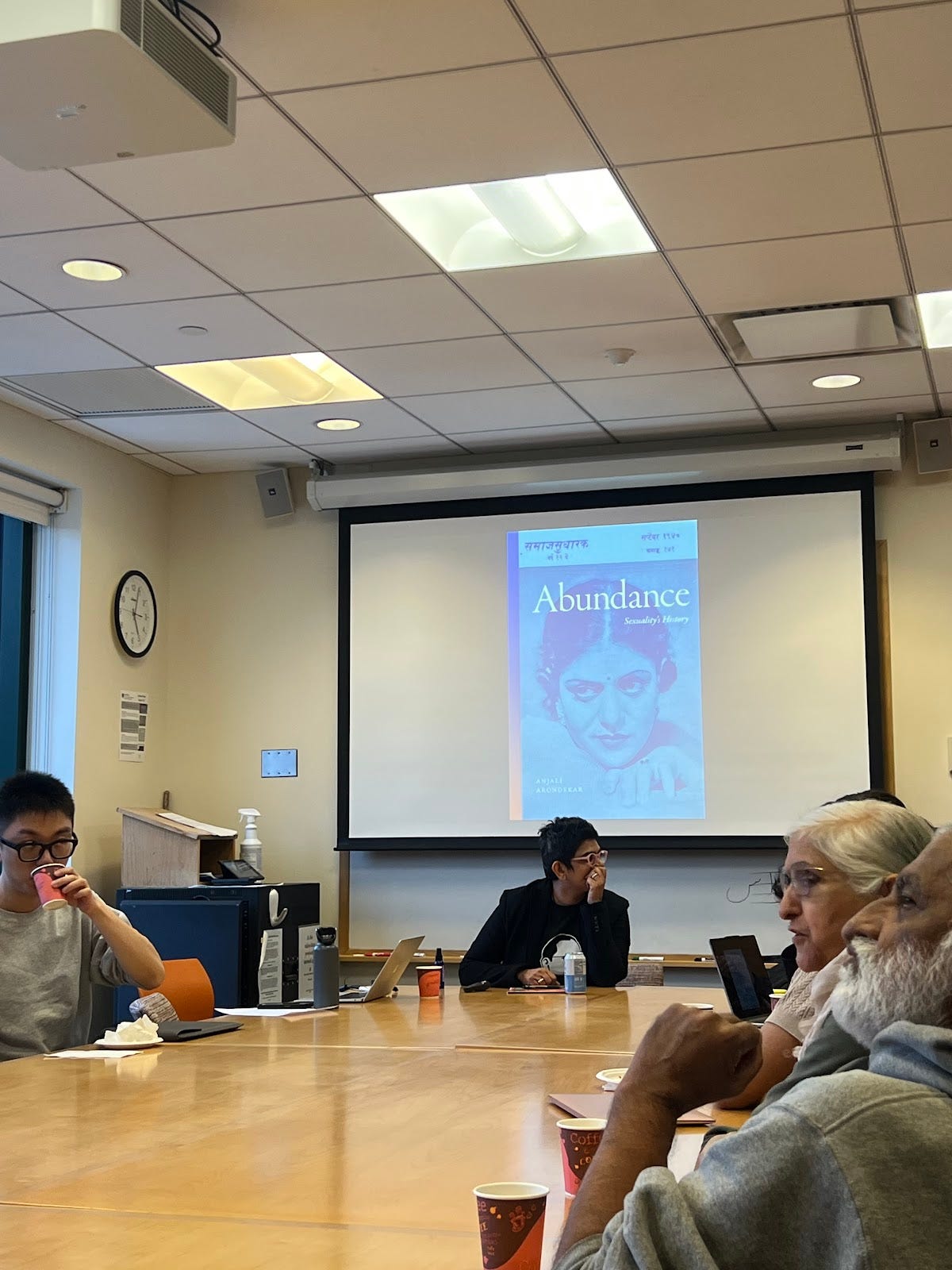

Finding people on Substack who's work I've long admired prior is always a delightful experience. I was pleasantly surprised to see your name pop up on my recommendations tab, and I loved reading this article.
Much appreciation
Jai Bhim